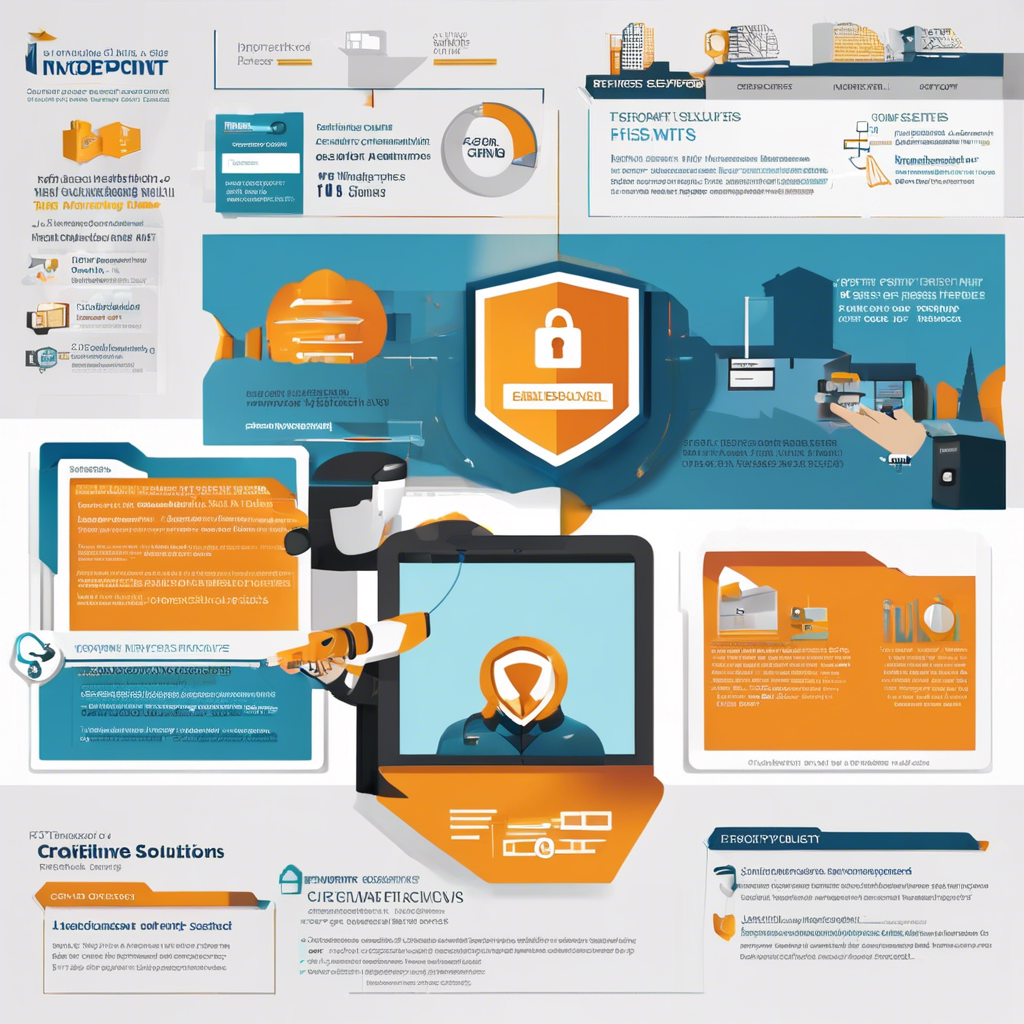Endpoint security solutions

Endpoint security solutions are crucial for protecting businesses and individuals from cyber threats. In today’s digital age, where cyber attacks are becoming more sophisticated and prevalent, having robust endpoint security measures in place is essential. Endpoint security refers to the practice of securing endpoints or devices such as laptops, desktops, and mobile devices that connect to a network. These endpoints are often the target of cybercriminals looking to exploit vulnerabilities and gain unauthorized access to sensitive information. In this article, we will explore the importance of endpoint security solutions and discuss some of the key features to look for when choosing a solution for your organization.
One of the primary functions of endpoint security solutions is to detect and prevent malware infections on endpoints. Malware, such as viruses, ransomware, and spyware, can cause significant damage to systems and compromise sensitive data. Endpoint security solutions use various techniques such as signature-based detection, behavioral analysis, and machine learning to identify and block malicious software before it can infect endpoints. By proactively detecting and stopping malware, these solutions help organizations mitigate the risk of cyber attacks and data breaches.
In addition to malware protection, endpoint security solutions also provide features such as firewall management, intrusion detection, and data encryption to enhance overall security. Firewalls act as a barrier between endpoints and external networks, monitoring incoming and outgoing traffic to prevent unauthorized access. Intrusion detection systems can identify and respond to suspicious activities on endpoints, while data encryption ensures that sensitive information is securely transmitted and stored. These additional layers of security help organizations strengthen their defenses against a wide range of cyber threats.
Endpoint security solutions play a critical role in safeguarding endpoints from both known and unknown threats. Traditional antivirus software relies on signature-based detection to identify known malware strains, making it less effective against new and evolving threats. Modern endpoint security solutions leverage advanced technologies such as artificial intelligence and machine learning to detect and respond to unknown threats in real-time. By continuously monitoring endpoint activity and analyzing patterns, these solutions can detect abnormal behavior indicative of a potential threat and take immediate action to contain it.
Endpoint security solutions should be easy to deploy, manage, and scale to meet the evolving needs of organizations. Cloud-based endpoint security solutions offer flexibility and scalability, allowing businesses to protect endpoints across different locations and devices from a centralized dashboard. These solutions can be quickly deployed without the need for additional hardware or infrastructure, making them ideal for organizations with limited IT resources. Automated updates and patches ensure that endpoints are continuously protected against the latest threats, reducing the burden on IT teams and improving overall security posture.
Endpoint security solutions should provide comprehensive visibility and control over endpoints to monitor and manage security incidents effectively. Centralized dashboards allow IT administrators to view the security status of all endpoints in real-time, track security events, and investigate incidents. Endpoint security solutions should also offer customizable policies and configurations to enforce security best practices and compliance requirements across endpoints. By gaining insight into endpoint activities and implementing proactive security measures, organizations can better protect against cyber threats and respond swiftly to security incidents.
Endpoint security solutions should integrate seamlessly with existing security infrastructure and technologies to provide a layered defense approach. Integration with security information and event management (SIEM) systems allows organizations to correlate endpoint security data with network-wide security events for a more comprehensive threat detection and response. Endpoint security solutions should also support integration with threat intelligence feeds to stay updated on the latest cyber threats and indicators of compromise. By leveraging the power of integration, organizations can enhance their security posture and better defend against sophisticated cyber attacks.
Endpoint security solutions should offer advanced threat hunting capabilities to proactively identify and neutralize potential threats before they escalate. Threat hunting involves actively searching for signs of malicious activity on endpoints, analyzing security logs, and conducting forensic investigations to uncover hidden threats. By adopting a proactive threat hunting approach, organizations can identify and remediate security incidents in their early stages, preventing widespread damage and data loss. Endpoint security solutions with built-in threat hunting capabilities empower organizations to stay one step ahead of cybercriminals and protect their endpoints effectively.
Endpoint security solutions should provide continuous monitoring and incident response capabilities to detect and respond to security incidents promptly. Real-time monitoring of endpoint activities allows organizations to identify suspicious behavior, unauthorized access attempts, and potential security breaches. Automated incident response features enable organizations to contain and remediate security incidents quickly to minimize the impact on business operations. Endpoint security solutions should also support forensic analysis and reporting to investigate security incidents thoroughly and implement measures to prevent future incidents. By maintaining a proactive security posture and rapid incident response capabilities, organizations can effectively defend against cyber threats and minimize the risk of data breaches.
In conclusion, endpoint security solutions are essential for protecting organizations from a wide range of cyber threats and ensuring the security of endpoints connecting to their networks. By implementing robust endpoint security measures, organizations can detect and prevent malware infections, enhance overall security posture, and respond effectively to security incidents. When choosing an endpoint security solution, it is important to consider factors such as malware protection, advanced threat detection capabilities, ease of deployment and management, integration with existing security technologies, and continuous monitoring and incident response capabilities. By investing in comprehensive endpoint security solutions, organizations can strengthen their defenses against cyber attacks and safeguard their sensitive information effectively.




